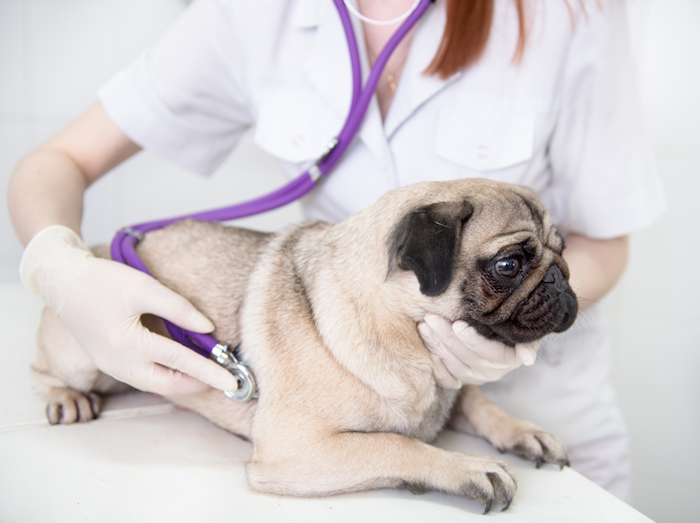Lungworm was once rare in UK, but it is now widespread, with cases reported across the country. The parasitic infection poses a real health risk for dogs of all ages and breeds, but many dog owners may not yet have heard of it.
What is Lungworm and how is it spread?
The lungworm that infects dogs and foxes in UK is a parasitic worm called Angiostrongylus vasorum which can cause serious health problems for your pup. Unlike worms that infect the digestive tract like tapeworms or round worms, lung worms live in the heart and blood vessels of the lungs, causing serious health issues. If a Lungworm infection is not diagnosed and treated it can prove fatal.
Lungworm larvae live in snails and slugs so dogs can become infected with the larvae by eating them or simply licking up snail or slug slime from the floor, in water or on their toys left outside. Dogs spend so much of their time with their noses and mouths on the ground, preventing an infection is difficult.
The larvae ingested by a dog or a fox travel to the blood vessels of the lung and heart where they develop into adult worms. The adults lay eggs which are coughed up or passed in the dog’s faeces, infecting snails and slugs as they feed on the poo. The eggs develop into the larvae in the snails and slugs and the infection cycle beings again.
Where in the UK is Lungworm found?
Lungworm is a growing threat to dogs across the UK as infections are becoming more common and being reported across the country. Until recently it was only found in a few areas in the south of England, but it is spreading, and it’s not really known how.
Bayer have a useful map showing reported cases of lungworm infection in UK. Simply enter your postcode and the map will tell you how many cases have been reported within a 50-mile radius of you.
What are the symptoms of Lungworm infection in dogs?
The worms in the lungs can cause an inflammatory response causing breathing difficulties and other severe symptoms. An infected dog with worms in the lungs will cough and wheeze and can become exhausted quickly. Extreme fatigue especially in young dogs, could be a key symptom.
The infection can also cause irregular heartbeat, swelling in the legs, and blood disorders such as prolonged bleeding from wounds, and haematomas under the skin. It can cause bleeding from the lungs, liver, intestine, eyes and almost anywhere in the body, so the dog could get nose bleeds, pass blood in urine or stools or become anaemic.
An infected dog might be unsteady on its feet and loose coordination or have seizures. The dog may be generally poorly, could stop eating, have vomiting and diarrhoea, stomach and back pain, and collapse. It has so many symptoms that it can be confused with other ailments and can last for years as a chronic disease or occasionally it can cause sudden death.
How is lungworm diagnosed?
It can take a whole raft of tests including testing faeces samples for eggs or larvae, a chest x ray and blood tests. Not finding worms doesn’t mean you dog isn’t infected as often diagnosis will be completed through history, clinical symptoms and response to treatment prescribed.
How is Lungworm in dogs prevented and treated?
If you think your dog might be suffering from Lungworm it is important to consult your vet as soon as possible. Treatment for the infection is widely available and easy to administer. Once treated most dogs make a full recovery. Making sure your regular anti-parasite medication covers Lungworm and making sure your dog receives the medication regularly is the best way to prevent an infection. However, if diagnosis is late and more damage has been done to the dog’s system, treatment is likely to be more expensive and potentially invasive, so it’s good to consult your vet as early as possible.

Always pick up your dog’s faeces and be vigilant when your dog or puppy is in the garden. Puppies are especially fascinated by anything they find, so could be more likely to become infected.
To make sure you can give your dog the best chance of recovery if they are unlucky enough to catch Lungworm and develop complications, consult our dog insurance comparison page and consider taking out pet insurance so you never have to make a decision about treatment for your pet based on cost.
